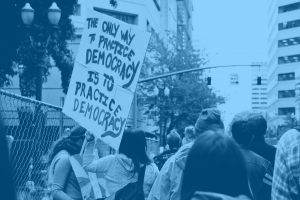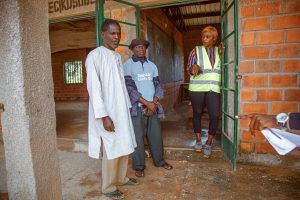Why Open Budgets, Contracts, and Ownership are Critical to Delivering Public Services in Africa
As we continue working to renew our societies and institutions, many are still grappling with the devastating socio-economic consequences the pandemic brought. And nowhere is that more evident than in Africa. The African Development Bank estimates that more than 69 million people in Africa were pushed into extreme poverty in 2020 and 2021. This is the greatest challenge African governments and their people are facing in decades. That is why it is important to step up efforts and reforms to advance sustainable development and economic recovery.
Now is the time for governments to invest in reforms that can accelerate and improve how they deliver quality educationAccountability within the public education system is key to improving outcomes and attainment, and accountability is nearly impossible without transparent policies and opportunities for participation ..., healthcare, water and sanitationOGP participating governments are in a unique position to address many of the root causes of water issues, including corruption and poor quality, as well as lack of prioritization, access, equity, and..., and supportive infrastructure. The evidence is clear. By opening up budget processes, public contracts and company ownership, elected leaders can reduce poverty numbers and move the needle towards sustainable development; by reducing, combating corruption and improving efficiency.
This year, OGP is working with partners to support governments and civil society in Africa and the Middle East to prioritize these reforms. Countries co-creating new action plans have a unique opportunity to lead the way, by committing to invest in these policy areas. This is why:
Open budgets: Governments spend large sums of public money on public services. Poorly managed budget processes result in corruption, wasteful expenditures and misdirection of funds meant for the delivery of services. Robust and transparent public finance management systems are required to track and manage these funds and ensure they are spent as allocated and planned. Openness and participatory budgeting further empower citizens to monitor and have a say in how public money is spent on services that matter to them. Opening up the budget and spending processes can also be both a powerful tool for planning, and risk mitigation, and an important safeguard to prevent corruption.
Open contracts: Governments rely on public contracting and other procurement arrangements to provide public services to citizens. However, poor public procurementTransparency in the procurement process can help combat corruption and waste that plagues a significant portion of public procurement budgets globally. Technical specifications: Commitments that aim t... More can lead to staff shortages, faulty and poor infrastructure, low-quality medicines and books, malnutrition, and inequality. Open contractingA transparent procurement process, known as open contracting, increases competition, improves public service delivery, and ensures governments better value for their money. Technical specifications: C... More provides better-linked data to track red flags, deter corruption and ensure the government efficiently and effectively provides public services. Done right, open contracting, saves money, increases competition, strengthens supply chains, reduces risk, creates space for citizen-driven accountability and encourages greater inclusionOGP participating governments are working to create governments that truly serve all people. Commitments in this area may address persons with disabilities, women and girls, lesbian, gay, bisexual, tr... More.
Open ownership: Business plays a critical role in supporting governments to deliver essential services such as building roads, schools and clinics, and more. Shell companies are often used to hide politically exposed and connected individuals who get government contracts to deliver these services, in most cases at inflated prices. Corruption scandals on COVID-19 funds in countries like South Africa, Uganda and Kenya are clear examples. Beneficial ownershipDisclosing beneficial owners — those who ultimately control or profit from a business — is essential for combating corruption, stemming illicit financial flows, and fighting tax evasion. Technical... More transparencyAccording to OGP’s Articles of Governance, transparency occurs when “government-held information (including on activities and decisions) is open, comprehensive, timely, freely available to the pub... More deters and combats corrupt dealings which affect how public services are delivered. Beyond combatting corruption, beneficial ownership disclosure levels the playing field for businesses seeking to provide public services. It reduces the cost of performing commercial due diligence and enables small businesses to perform the due diligence that only large businesses can currently afford.
Accelerating and improving the delivery of quality education, healthcare, water and sanitation and supportive infrastructure by opening up budget, contracts and company ownership processes will take a concerted effort to achieve impact. OGP will host a series of events and conversations throughout the year for government, civil society, partners and other stakeholders to unpack how these reforms can become an integral part of the government policy and programming and leverage OGP action plans. It will be an opportunity for governments to recommit to open government reforms to reverse the effects of the pandemic on the African continent. Not only is this the right thing to do but it improves citizens’ lives and well-being and should be prioritized.
No comments yet
Related Content

A Decade of Impact – OGP 2021 Annual Report
Read OGP's 2021 Annual Report for a highlights from the year, including reflections on the progress the Partnership has made in its first decade and an ambitious agenda for its…

Open Government Approaches in Summit for Democracy Commitments
Explore OGP's analysis of Summit For Democracy commitments, their relevance to open government values, their areas of focus, and how they compare to OGP commitments.

Public Service Delivery in OGP
OGP members can enhance health, education, and other public services by improving transparency and engaging citizens.


Leave a Reply